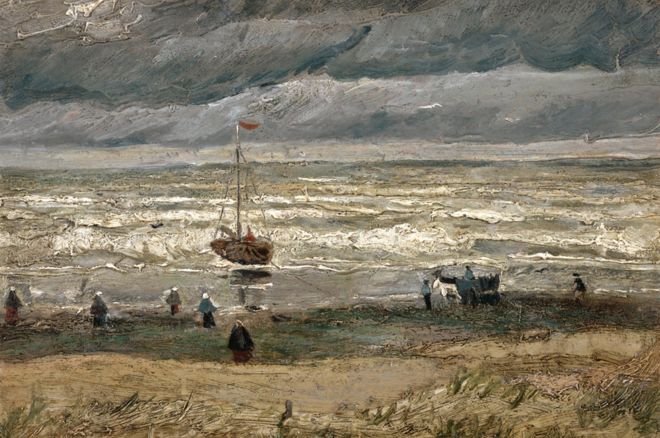 Italian police have recovered two Van Gogh paintings stolen during a dramatic raid on an Amsterdam museum in 2002.
Italian police have recovered two Van Gogh paintings stolen during a dramatic raid on an Amsterdam museum in 2002.
The works were recovered from the Naples mafia, they said.
The Van Gogh museum in Amsterdam said the works were found during a "massive, continuing investigation" by Italian prosecutors and organised crime officials.
The paintings were taken when thieves used a ladder and sledgehammers to break into the museum.
They were eventually found wrapped in cloth in a safe in a house in the picturesque seaside town of Castellammare di Stabia, near Pompeii.
The works were among assets worth millions of euros seized from a Camorra organised crime group linked to cocaine trafficking, Italian reports said.
Months earlier, police had arrested several suspected drug traffickers who had invested their proceeds in Dubai, Spain and the Isle of Man. They were reportedly linked to one of the biggest mafia clans in the Scampia area of northern Naples.
Among those arrested in January were suspected drugs gang leader Raffaele Imperiale and Mario Cerrone. It was Mr Cerrone who apparently told investigators about the two paintings.
The theft of the two works, valued by investigators at $100m (£77m; €89m), led to criticism of security at the world's major art museums.
The thieves broke into the museum through the roof during the night of 6-7 December 2002 and used sledgehammers to break a first-floor window.
They took the paintings off the walls of the main exhibition hall. Experts were baffled at the time of the theft because guards had been on patrol and infra-red security systems were in place.
Neither work was insured at the time, and both were on loan to the Van Gogh museum from the Dutch government. Two Dutch citizens were jailed for theftbut always maintained their innocence.
The museum said it was so far unclear when the works would be returned to Amsterdam but in a statement it said they appeared to be in "relatively good condition".
Dutch and Italian ministers were overjoyed by the news, and praised Italian investigators.
Why are the paintings significant?
Vincent Van Gogh (1853-1890) is widely considered the greatest Dutch artist after Rembrandt.
Seascape at Scheveningen was one of only two seascapes he painted while he lived in the Netherlands.
It shows a foaming, stormy sea and thundery sky, and was painted in 1882 while he was staying in The Hague.
Congregation Leaving the Reformed Church at Nuenen (1884) was painted for Van Gogh's mother, but also partly for his father, who had become a pastor at the church in 1882. When his father died in 1884, Van Gogh added churchgoers, including a few women wearing shawls used for mourning.
Van Gogh committed suicide in France in 1890.
Recovering stolen masterpieces
The 2002 Van Gogh museum raid was one of a series of thefts that shocked the art world.
In 2004, two Edvard Munch masterpieces, The Scream and Madonna, were seized by armed men who raided the Munch museum in Oslo. Several men were jailed and the paintings later recovered after painstaking detective work in 2006.
Another version of The Scream was stolen from the National Art Museum in Oslo in 1994 and that too was later recovered in a sting operation by UK detectives.
In 2012, seven artworks were stolen from Rotterdam's Kunsthal museum, including paintings by Picasso, Monet and Matisse. Two Romanians were later jailed, telling a Bucharest court that security at the museum had been lax. Some of the paintings were destroyed in an oven.
Earlier this year, four paintings out of a haul of 24 stolen from a Dutch gallery in 2005 were recovered in Ukraine.
No comments:
Post a Comment